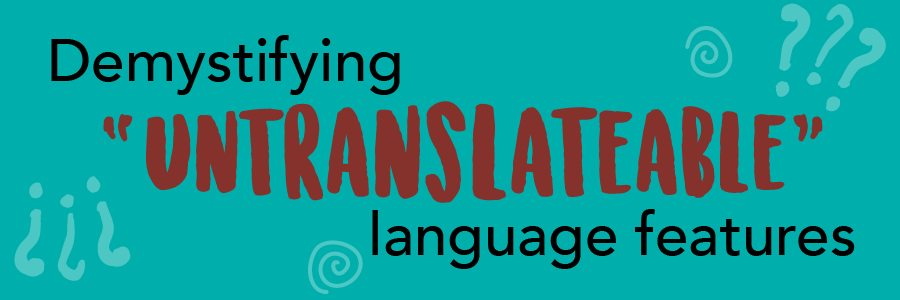
You just wouldn’t understand
In high school French class, I was sorely disappointed when our teacher refused to teach us the subjunctive. She said it was too hard, because it simply couldn’t be translated into English. And that just made it more tantalizing!
She was, of course, being ridiculous. Although mastering the French subjunctive is a challenge for English speakers, it’s not nearly as hard as she made out. She just didn’t know how to demystify the “untranslateable”.
Whenever you encounter a language feature that can’t be directly translated–and therefore seems exotic and perhaps, incomprehensible–look for an analogy in English.
For subjunctive, in fact, it’s easy, because English has its own subjunctive. It’s not used very much and most examples of French (or Spanish) subjunctive can’t be translated by it; but nevertheless it’s familiar.
For example, if you say: “I wish I were rich,” you’re using the subjunctive. (Although “were” usually signals past tense, here it obviously doesn’t. Instead, it signals an unreal space of wishing and possibility–and that’s the subjunctive. Hmmm … not that exotic after all.)
Now this doesn’t solve the problem of learning the subjunctive in French or Spanish–you still have to learn the many nuances of how and when it’s used. It just makes it more approachable by linking it to something you already know. “I’d prefer that you were home tonight.” “She demanded that he run the company.” “If they were alive, they wouldn’t approve.”
But aren’t there some language features that simply don’t have a direct counterpart in English? Yes, indeed–and in that case, you have to be more creative about finding an analogy.
The weird thing about usted
Here’s one that occurred to me recently. In Spanish, one normally omits subject pronouns (yo, tú, etc.) except for emphasis. And yet, with the polite (usted) form, one very often includes the subject pronoun.
For example, where informally one would say: “Tienes hambre?” (“Are you hungry?”), to be polite one would probably say: “Tiene usted hambre?” (“Are you hungry?” – polite form).
That just seems utterly mysterious. Who makes up a rule like that!?
And to make matters worse, it’s not a hard and fast rule, just a tendency. You can perfectly well say, “Tiene hambre?” (“Are you hungry?” – also polite). It seems so arbitrary.
Then it dawned on me. In English, one of the ways that we signal politeness is by throwing in “sir” or “m’am”. It’s never obligatory, but if you compare: “Are you hungry?” with “Sir, are you hungry?”, the latter feels extra polite.
In the same way, throwing in an extra “usted” is just a way of signaling one more touch of politeness. Nothing especially mysterious or difficult about it.

